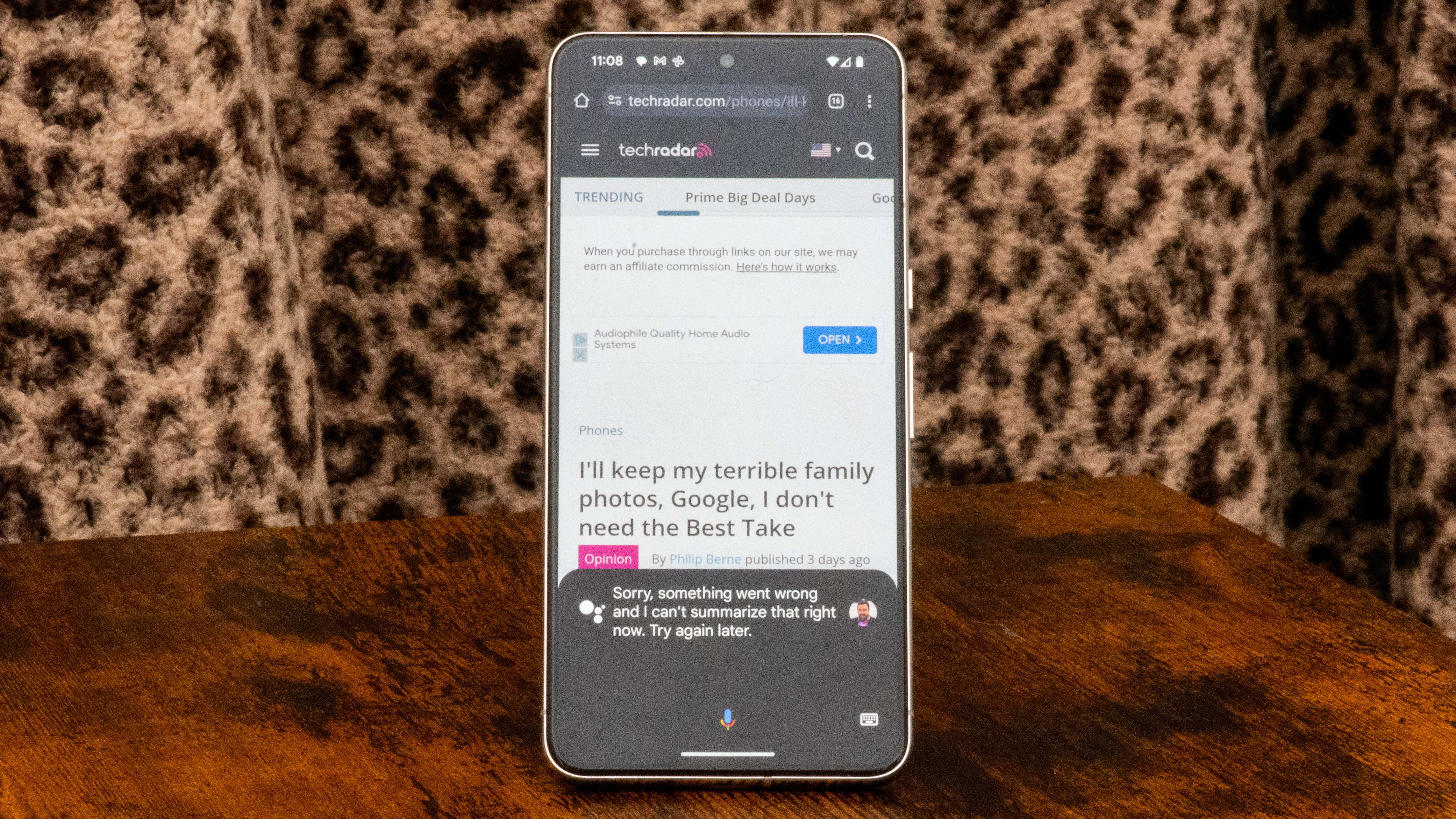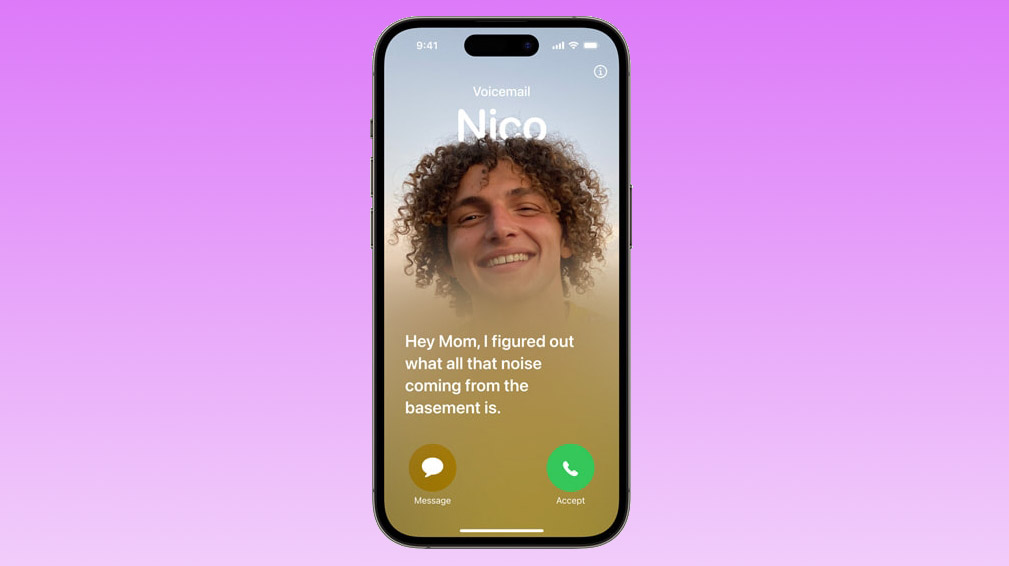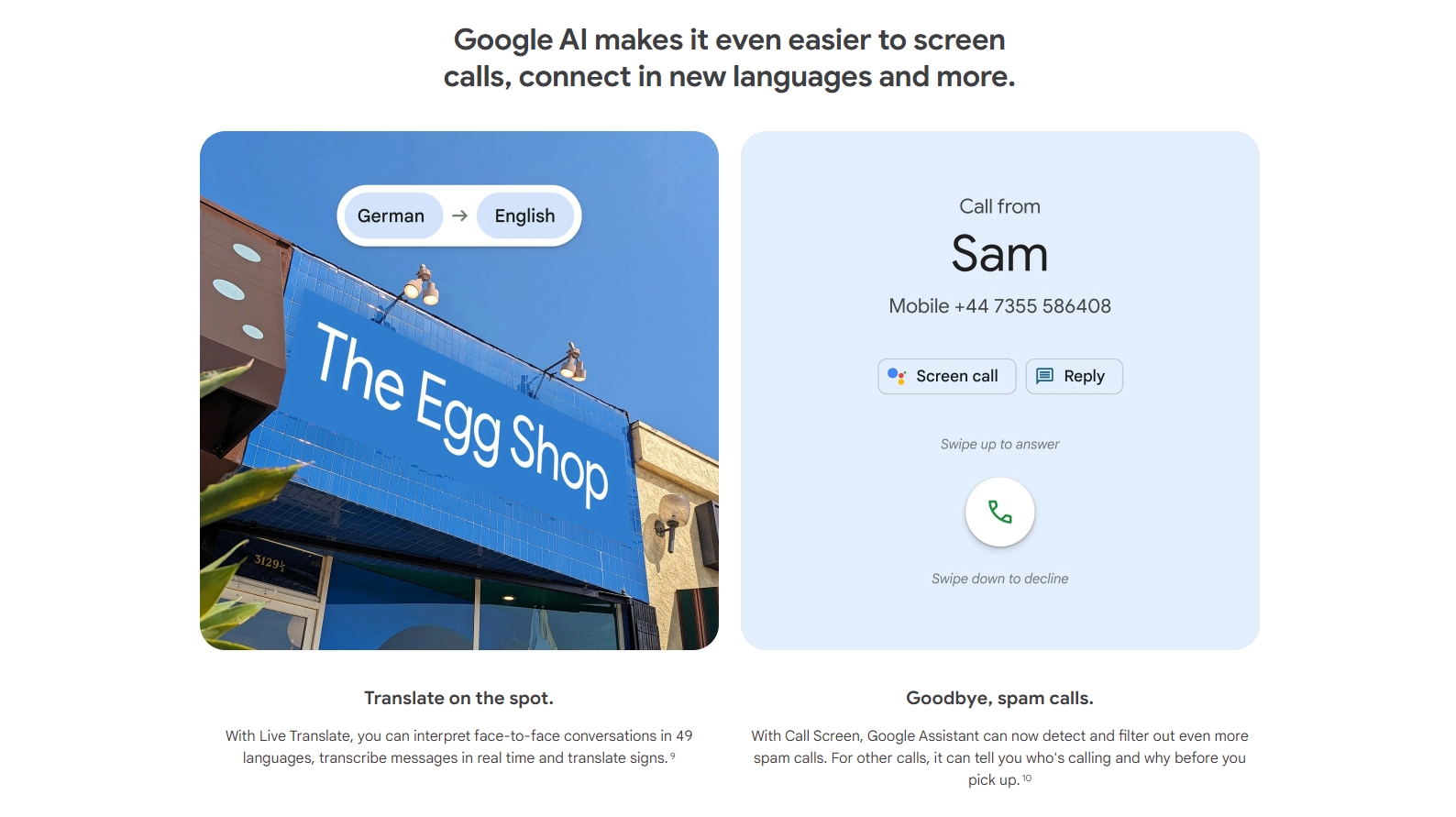Outside the US? Then you’ll be getting worse versions of the Google Pixel 8 and iPhone 15
An unequal approach

The Google Pixel 8, Pixel 8 Pro, and iPhone 15 series are all excellent phones. In fact, the iPhone 15 Pro has topped our list of the best iPhone and its standard sibling is the best phone for most people. But while these are all great devices wherever you buy them, they’re at their best in the US, because in other regions they’re missing some key features.
In the case of the iPhone 15 line (and previous iPhones for that matter) you don’t get Live Voicemail unless you’re in the US or Canada, and have your phone set to English. This is one of the major new features of iOS 17, so it’s a significant omission for people in the rest of the world.
As for the Pixel 8 and Pixel 8 Pro, you only get the latest, AI-enhanced version of the Call Screen feature (which includes a more natural sounding voice and better spam call prevention) if you’re in the US (and have your phone’s language set to English). This similarly is a major feature of the Pixel 8 line.
Gboard’s proofreading function is also locked to the US, so you can’t get the keyboard to check your grammar in other regions.
There are also features that, while not locked fully to the US, do require your phone to be set to US English. This includes Summarize, which generates summaries of web pages. And a number of other features are available in some regions beyond the US but not everywhere.
This is clearly an issue, as evidenced by the number of lengthy threads on Reddit and elsewhere complaining about missing features.
Feature parity or feature clarity

What’s perhaps worse though is that Google and Apple aren’t doing much to highlight the limited availability of these features. When announcing the Pixel 8 line and iOS 17, Google and Apple shouted about the updates to Call Screen and the new Live Translate feature, but you’d have to look in the small print to learn that most of the world doesn’t actually have access to them.
Sign up for breaking news, reviews, opinion, top tech deals, and more.
Or, if you're looking at Google's or Apple's sites for your region then these features may not be mentioned at all. That's fair enough, except that the announcement and inevitably most of the online coverage did mention such features, so people will understandably be expecting them to be included.
And sometimes they are mentioned. The official overview of the Pixel 8 Pro on Google's UK store for example currently mentions a feature that the small print then says is US-exclusive. If that's not misleading, I don't know what is.
And yes, these are US companies and they announced these features on US soil, but they’re selling their phones globally, and in vast numbers. So it’s important to offer an equal product and service everywhere, as much as possible. Or at the very least to make it crystal clear to buyers what they will and won’t actually get.
There may well be good reasons why some features are regional. It’s understandable that Google and Apple would prioritize English for example, which could slow down the arrival of language-dependent features.
There may also be legal issues preventing or slowing the adoption of certain features in particular regions; in some cases, they might require carrier participation, as with the iPhone’s Visual Voicemail.
But for such massive companies, it’s hard to believe that these hurdles couldn’t have been tackled in at least more places than they have been. Indeed, it’s hard to escape the feeling that both Apple and Google take a US-first – and sometimes only – approach here, which is unfortunate, and arguably unfair when their devices are similarly or more expensive elsewhere.
Again though, they should at the very least make it abundantly clear – without the need for people to rely on small print – what you will and won’t get with a phone in your region.
Hoping for change

Hopefully, some of these things will be made more widely available in the future. But right now if you’re not in the US, you won’t get the full iPhone or Pixel experience.
What we really hope then is that these companies will remember that they operate globally, and start treating the rest of the world as more than what I feel is an afterthought, either with feature parity or at least better labeling of what is and isn’t included.
I'm not super optimistic that this will happen, but the more people shout about it, the more likely it is. After all, Google is offering a remarkable seven years of software updates on the Pixel 8 line, and it’s hard to imagine the numerous complaints from journalists and consumers about the limited support given to Android handsets wasn't a factor in that.
So if you want these features, make your voice heard, and maybe one day the big, exciting announcements that Google and Apple make on their stages will apply to everyone, not just those in their home nation. In the meantime though, make sure you read the small print.
You might also like
- Google Pixel 8 review: full of surprises
- Google Pixel 8 Pro review: making more out of your phone
- What is Live Voicemail in iOS 17?
James is a freelance phones, tablets and wearables writer and sub-editor at TechRadar. He has a love for everything ‘smart’, from watches to lights, and can often be found arguing with AI assistants or drowning in the latest apps. James also contributes to 3G.co.uk, 4G.co.uk and 5G.co.uk and has written for T3, Digital Camera World, Clarity Media and others, with work on the web, in print and on TV.